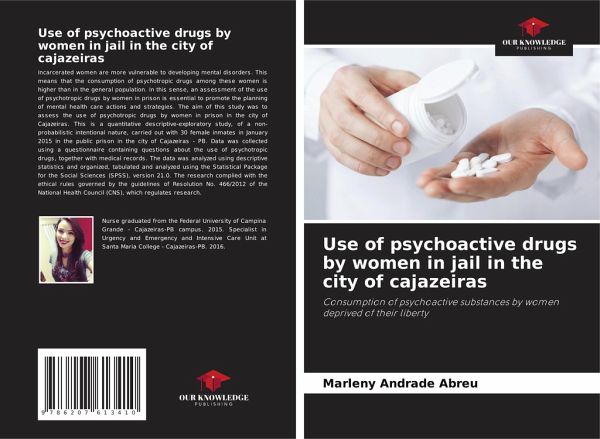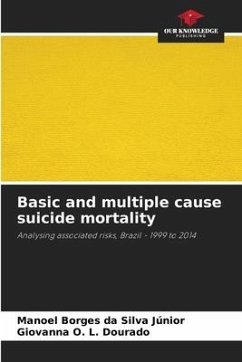
Use of psychoactive drugs by women in jail in the city of cajazeiras
Consumption of psychoactive substances by women deprived of their liberty
Versandkostenfrei!
Versandfertig in 6-10 Tagen
24,99 €
inkl. MwSt.

PAYBACK Punkte
12 °P sammeln!
Incarcerated women are more vulnerable to developing mental disorders. This means that the consumption of psychotropic drugs among these women is higher than in the general population. In this sense, an assessment of the use of psychotropic drugs by women in prison is essential to promote the planning of mental health care actions and strategies. The aim of this study was to assess the use of psychotropic drugs by women in prison in the city of Cajazeiras. This is a quantitative descriptive-exploratory study, of a non-probabilistic intentional nature, carried out with 30 female inmates in Janu...
Incarcerated women are more vulnerable to developing mental disorders. This means that the consumption of psychotropic drugs among these women is higher than in the general population. In this sense, an assessment of the use of psychotropic drugs by women in prison is essential to promote the planning of mental health care actions and strategies. The aim of this study was to assess the use of psychotropic drugs by women in prison in the city of Cajazeiras. This is a quantitative descriptive-exploratory study, of a non-probabilistic intentional nature, carried out with 30 female inmates in January 2015 in the public prison in the city of Cajazeiras - PB. Data was collected using a questionnaire containing questions about the use of psychotropic drugs, together with medical records. The data was analyzed using descriptive statistics and organized, tabulated and analyzed using the Statistical Package for the Social Sciences (SPSS), version 21.0. The research complied with the ethical rules governed by the guidelines of Resolution No. 466/2012 of the National Health Council (CNS), which regulates research.














